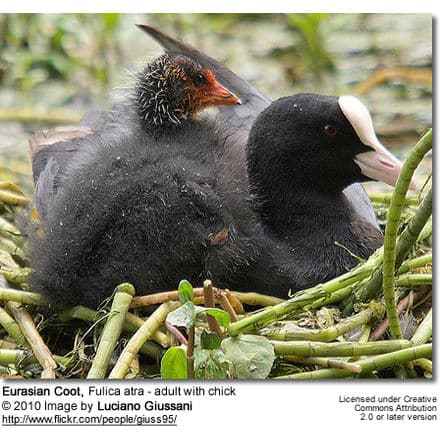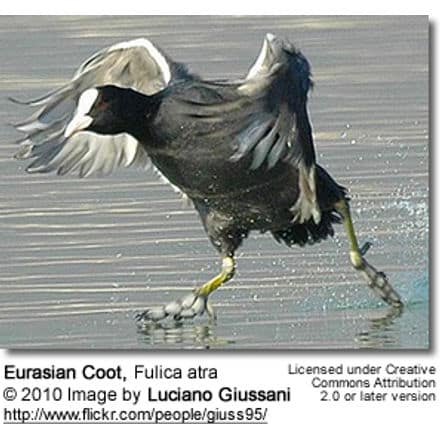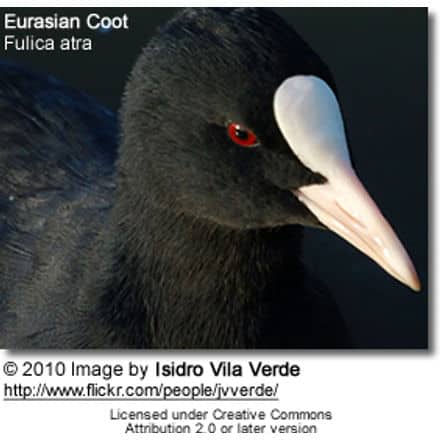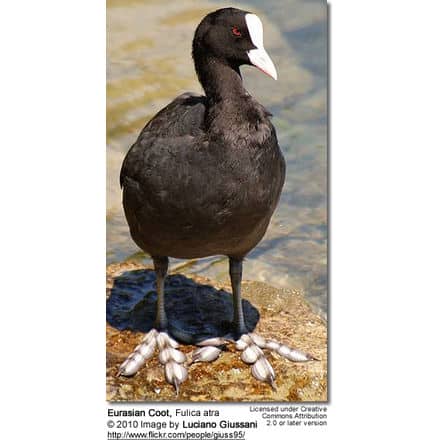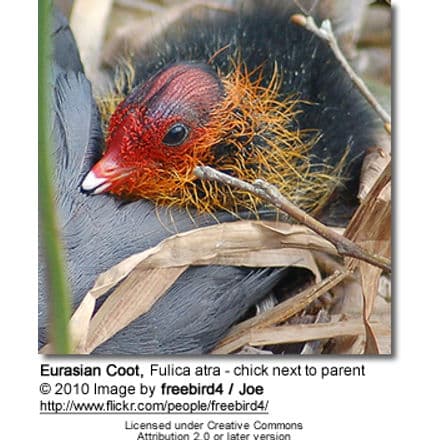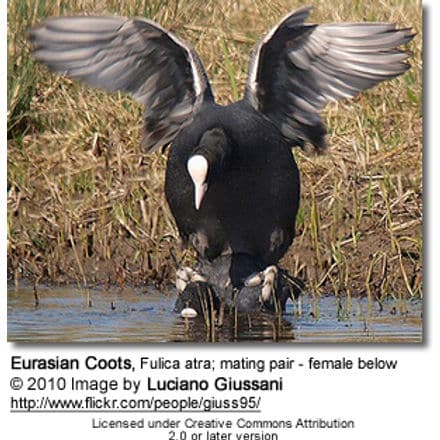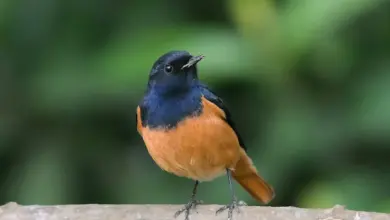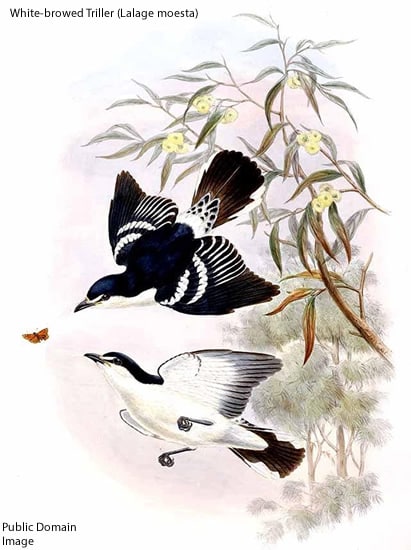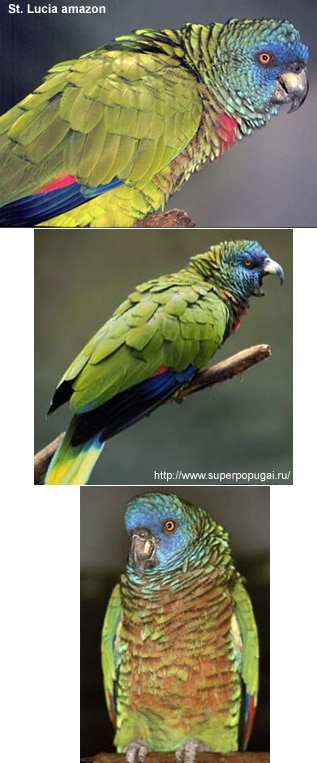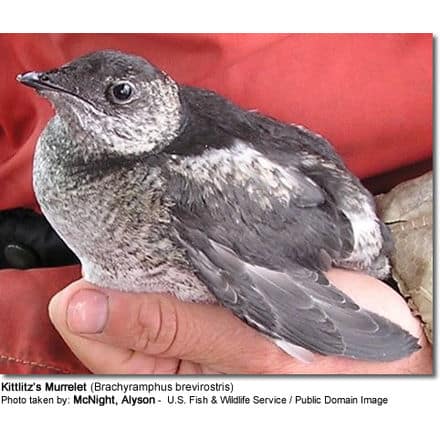Eurasian Coots (Fulica atra)
The Eurasian Coots, Fulica atra, also known as Coot, is a member of the rail and crake bird family, the Rallidae. The Australian subspecies is known as the Australian Coot.
Coot Species and Information … Coot Species Photos
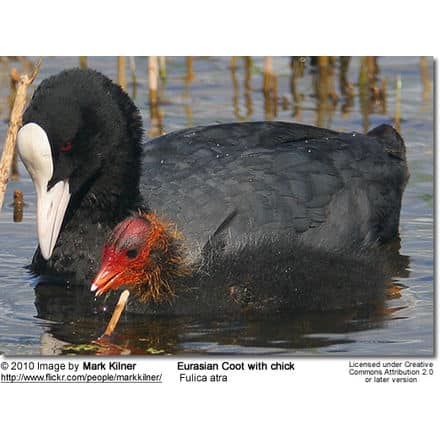
Distribution
The Coot breeds across much of the Old World on freshwater lakes and ponds. It occurs and breeds in Europe, Asia, Australia, and Africa. The species has recently expanded its range into New Zealand.
It is resident in the milder parts of its range but migrates further south and west from much of Asia in winter as the waters freeze.
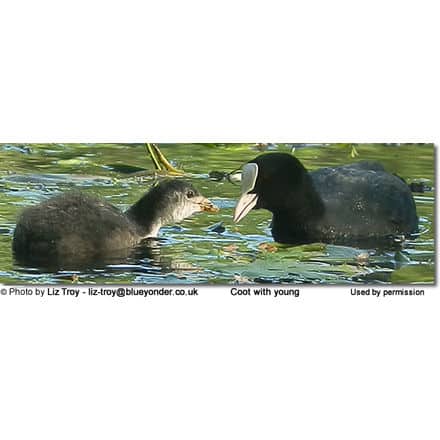
Description
The Coots is 36–42 cm long and is largely black except for the white facial shield (which gave rise to the phrase “as bald as a coot”, which the Oxford English Dictionary cites in use as early as 1430). As a swimming species, the Coot has partial webbing on its long strong toes.
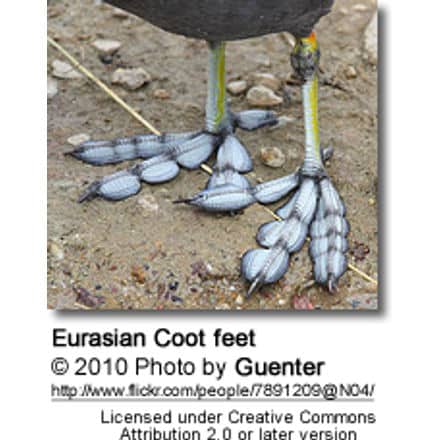
The juvenile is paler than the adult, has a whitish breast, and lacks the facial shield; the adult black plumage develops when about 3–4 months old, but the white shield is only fully developed at about one year old.
This is a noisy bird with a wide repertoire of crackling, explosive, or trumpeting calls, often given at night.
Behavior
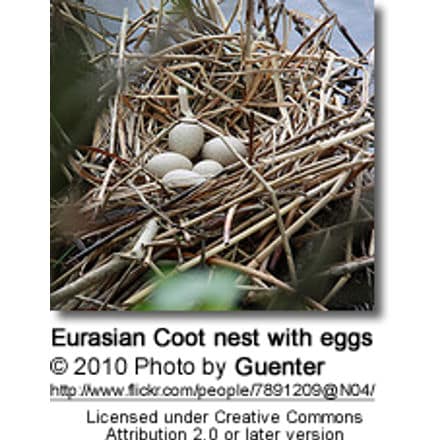
The Coot is much less secretive than most of the rail family and can be seen swimming on open water or walking across waterside grasslands.
It is an aggressive species, and strongly territorial during the breeding season, and both parents are involved in territorial defense. During the non-breeding season, they may form large flocks, possibly related to predator avoidance.
It is reluctant to fly and when taking off runs across the water surface with much splashing. They do the same, but without actually flying, when traveling a short distance at speed in territorial disputes.
As with many rails, its weak flight does not inspire confidence, but on migration, usually at night, it can cover surprisingly large distances.
It bobs its head as it swims, and makes short dives from a little jump.

Breeding
This species builds a nest of dead reeds or grasses, but also pieces of paper or plastic near the water’s edge or on underwater obstacles protruding from the water, laying up to 10 eggs, sometimes 2 or 3 times per season.
Usually only a few young survive. They are frequent prey for birds such as herons and gulls.
Coots can be very brutal to their own young under pressure such as the lack of food. They will bite young that are begging for food and repeatedly do this until they stop begging and starve to death. But if the begging keeps going, then they may even bite so hard that the chick is killed.
Diet
The Eurasian Coots is an omnivore and will take a variety of small live prey including the eggs of other water birds, as well as algae, vegetation, seeds, and fruit. It shows considerable variation in its feeding techniques, grazing on land or in the water. In the water, it may upend in the fashion of a Mallard or dive in search of food.
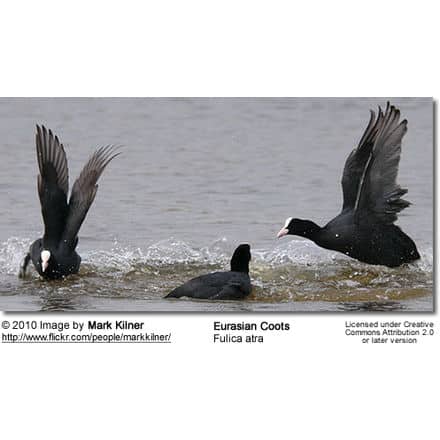
Status
The Eurasian Coots is one of the species to which the Agreement on the Conservation of African-Eurasian Migratory Waterbirds (AEWA) applies.
